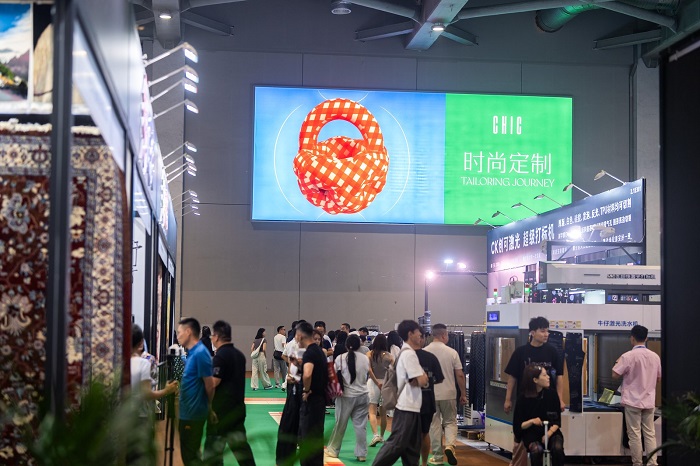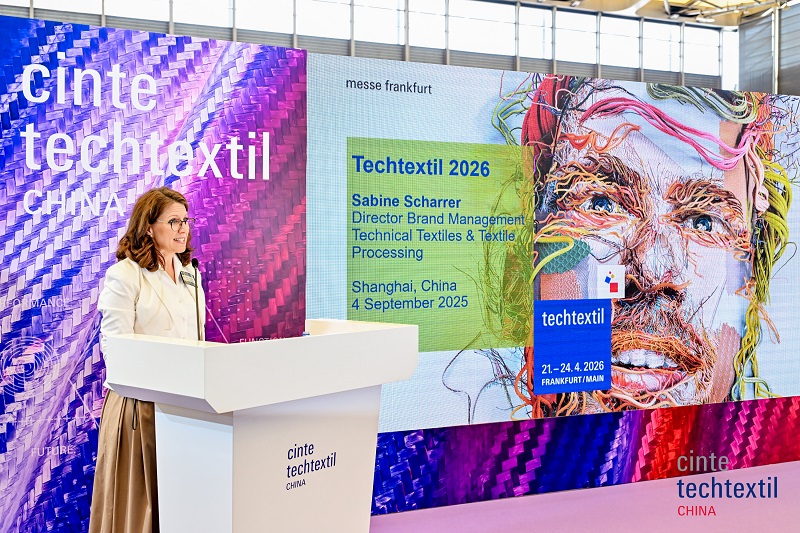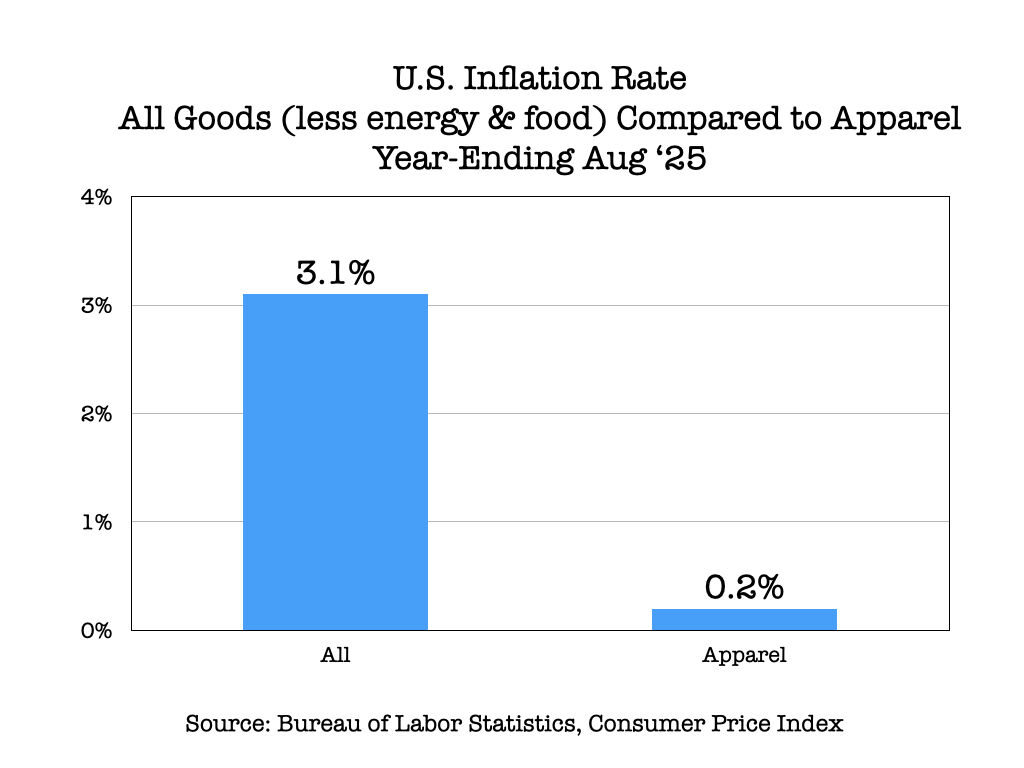FW
The Cambodian Confederation of Unions (CCU) issued a statement expressing its concern that the upcoming election will impact garment workers, and that if the political climate isn’t improved they could face dire consequences in the form of sanctions or boycotts. According to a World Bank report from 2016, 45 percent of Cambodia’s garment exports end up in the EU, while 25 percent go to the United States.
Earlier this year, representatives from VF – the parent firm of brands such as The North Face, Jansport and Timberland – visited Cambodia and delivered a petition to Prime Minister Hun Sen as well as to the Ministry of Labour, expressing their concern for “recent actions that seem to undermine progress toward improving worker rights”.
VF sources from over 20 factories in Cambodia and spends between $350 and $400 million here every year, according to the Labour Ministry. A report from the Ministry of Industry and Handicrafts showed that factories in the country generated $10.79 billion last year, $7 billion of which came from export-focused garment manufacturers.
Local textile manufacturing companies in Ghana have appealed to the government for tax exemptions on their products as an incentive to help revive the industry. According to them, this will help them compete with the influx of cheap textile products from China and other parts of the world.
According to the textile manufacturing companies, about 70 pe rcent of textiles on the Ghanaian market are cheap imported products mostly from Togo and China. The remaining 30 percent is shared among three local textile companies – Ghana Textile Printing (GTP), Akosombo Textiles Ltd (ATL) and Printex. These three companies currently produce about 30 million yards of fabrics even though it has the capacity to do about 60 million annually. The tax stamp is likely to curtail the situation.
US apparel retailers have been beaten by the low prices found at fast fashion stalwarts like H&M and Forever 21 and at off-price retailers like T.J. Maxx, and that is squeezing margins.
The specialty retailers, in a recent Morgan Stanley's report say they are working to get their merchandise mix right in order to avoid over-stacking sale racks. Much of that involves righting the supply chain, speeding up production and employing analytics to ensure that supply meets demand.
That also means getting the customer experience in stores right, just as in case of Horowitz, which has embarked on a new store concept that is expanding after initial tests.
This year, the retailer will open four new stores using the prototype it runs in select areas and will remodel eight others along those lines.
A meeting of stakeholders on Samarth – Scheme for Capacity Building in Textile Sector under the Skill India Mission was held in New Delhi recently to familiarise the stakeholders about the scheme and its guidelines.
The objective of the new scheme is to train the youth for gainful and sustainable employment in the textile sector covering the entire value chain of textiles, excluding spinning and weaving.
The scheme, approved by the Cabinet Committee on Economic Affairs in December 2017, will provide demand driven, placement oriented National Skills Qualifications Framework (NSQF) compliant skilling programmes to incentivise and supplement the efforts of the industry in creating jobs in the textiles sectors.
The scheme aims to train 1 millionpeople (9 lakh in organised and 1 lakh in traditional sector) over a period of 3 years (2017-20), with an outlay of Rs. 1,300 crore.
Delta Galil, based in Tel Aviv, Israeli, named Tim Baxter as the new chief executive officer of the 7 For All Mankind and Splendid brandsdivision. He will replace Paula Schneider, the former chief executive of American Apparel and president of Warnaco Swimwear Group.
With over 26 years of experience in Macy’s Inc, where he served as the chief merchandising officer, Baxter will work out of New York and Los Angeles and set the direction for 7 For All Mankind and Splendid, two Los Angeles contemporary labels that Delta Galil acquired in 2016 from the VF Corp.
Currently, Baxter is a member of the Jay H. Baker Retailing Center at the Wharton School of the University of Pennsylvaniaadvisory board.
He holds a bachelor’s degree in business psychology from Miami University in Ohio.
Cotton seed companies in Punjab have reported low demand for BT cotton seeds, the variety that accounts for most of the cotton grown in the country.
This is due to the farmers shifting to other crops, especially paddy and maize, which yield higher returns.
Accordingly, cotton acreage in the state this kharif season is expected to drop by 15-20 per cent despite an 8 per cent discount in price of seeds this year. If the sowing doesn’t pick up pace, it is likely to affect the revival of cotton in Punjab, where acreage under the cash crop had jumped by about half in 2017-18.
Cotton, especially BT cotton, was grown over 12.2million hectares in India in 2017-18.
In recent years, pest infestation, high input costs and drop in earnings in cotton have hit farmers hard.
To end poverty wages that haunt workers in Ethiopia’s textile and garment sector, IndustriALL Global Union affiliate the Industrial Federation of Textile, Leather and Garment Workers Trade Unions (IFTLGWU) is leading a campaign for better wages, workers’ rights to organise, and collective bargaining.
The campaign targets the industrial parks set up by the government including Bole Lemi in Addis Ababa where South Korean garment manufacturer, Shints, employs 4,300 workers, of whom 3,800 are union members. Other parks targeted by the campaign includeHawassa and Mekele.
According to these unions, minimum wages are the starting point in reversing low wages and they should be included in the new labour laws under consideration.
Eventually the unions want to shift the campaign to living wages. Unions are campaigning for minimum wages above ETB 3373 (US$121). These wages can be pegged using the official minimum wage, ETB1800 (US$64)), or the consumer price index, ETB2400 (US$86). Current wages average below US$50.
According to the views expressed in a workshop held in Hanoi in May 9, 2018, the Comprehensive and Progressive Agreement for Trans-Pacific Partnership (CPTPP) agreement will to boost Vietnam’s textiles and garment exports to Australia to double-digits.
The workshop, jointlyheld by the Vietnam Textile and Apparel Association (VITAS) and the IEC Group of Australia, focused on measures to help Vietnamese textiles and garment enterprises increase exports to Australia.
The total textiles and garment import turnover of the CPTPP member countries, according to reports, exceeded 53 billion USD in 2017, of which Australia was the third biggest import market with total turnover reaching over 6.2 billion USD, accounting for 11.67 percent.
Vietnam earned over 4.8 billion USD from exporting textiles and garments to the other CPTPP member nations in 2017, making up 9.07 percent of the market share.
Bally Ribbon Mills (BRM) will highlight its solutions at Techtextil North America, which will be held in Atlanta, GA, this month.
The company will showcase tapes and webbings that engineers can use to meet their advanced material needs, including: conductivity properties needed for smart textiles, colour requirements, flame resistance, durability, flexibility, chemical resistance, controlled elongation, specific strength, and lightness properties.
With more than 95 years of textile manufacturing experience, BRM designs, develops and manufactures woven webbing, tapes, specialty fabrics, woven preforms, and two dimensional and three dimensional structural fabrics. Working in aerospace, defence, medical, safety, automotive, commercial, and industrial applications, the company offers technical know-how, extensive weaving capabilities, and quality assurance systems.
Russia, a non-traditional export destination for Bangladeshi garments, has a market of $52 billion in garments sector,which Bangladesh has recently begun to target.
As part of this, the country will hold a fair in Moscow from May 21-23, 2018.
The fair will target Bangladeshi garments and jute sector entrepreneurs, organisation of owners and entrepreneurs of ready-made garment sector BGMEA, jute entrepreneur, BJMC and Jute Diversification Promotion Center (JPDC).
The fair will be held at the Radisson Slavianskaya Hotel and business center in Moscow.
The Bangladesh Export Promotion Bureau and the Bangladesh Embassy of Moscow will organise the fair












